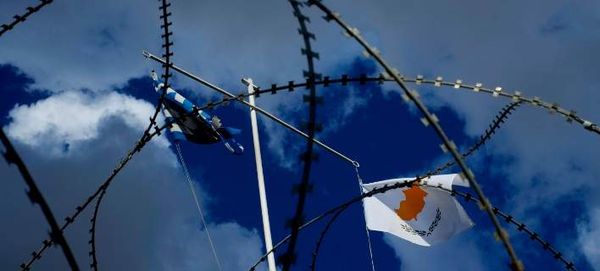Interview with Stavri Kalopsidiotou, International Law specialist, member of the Cyprus Problem Office of AKEL and of the Central Committee of AKEL
● Time is dangerously running out for the Cyprus problem
● The question as to what new development the participation of a European Council representative can bring has not been answered
● The President must take seriously into account the issue of energy and political equality
Saturday 15 April 2023, “Haravgi” newspaper
QUESTION: President Christodoulides says he is ready to formulate a positive agenda in relation to Turkey in order to unleash incentives that will bring Turkey to the negotiating table. Have you see any steps being taken in this direction?
SK: The objective behind the assumption of initiatives is the resumption of substantive negotiations that should put the Cyprus problem back on track for a solution on the agreed basis. Time is dangerously running out [for the solution of the Cyprus problem] and as the President of the Republic, Mr. Christodoulides must make the correct assessments as to which initiatives can provide real incentives for Turkey and the Turkish Cypriot community. For that reason, the positive agenda, which we have always backed, cannot be a one-sided one.
Euro-Turkish relations have been on a path of uncertainty for years, not because of the Cyprus problem. It is therefore incumbent on the President of the Republic to take seriously into account two other factors that can most directly provide incentives for the resumption of the negotiations. And these two factors are none other than energy and the absolute respect for the political equality of the Turkish Cypriots, as defined by the UN and agreed up to the end of the Crans Montana Conference.
AKEL’s proposal, which was unfortunately met with derision and was distorted by the former President N.Anastasiades, includes both, and finds resonance among the forces that want a solution to the Cyprus problem and is being viewed positively internationally.
The least that Mr. Christodoulides can do, therefore, is to study it and, measuring the prospects that it can create, to make use of it as a key component of the positive agenda that he proclaims he wants to promote.
QUESTION: How feasible is the involvement of the European Union in the procedure for the solution of the Cyprus problem? Isn’t there the danger of the procedure straying from the framework of the UN Security Council?
SK: It is obvious that the Republic of Cyprus needs all potential allies and the involvement of those who can contribute constructively to the effort for a solution of the Cyprus problem, including the European Union. But this is not a new element, nor do we have a short memory. The Geneva Conference was attended by Mr. Juncker. At Crans Montana, Mrs. Mogherini herself was present at the closing dinner in her capacity as High Representative for Foreign Policy and Vice-President of the European Commission. Mr. Van Nuffel was also present at the talks for the purposes of harmonizing {the solution] with the acquis.
The question as to what new development the participation of a European Council representative can bring has not been answered. Just as we have not been briefed in detail about the whole of the President’s proposal, even after the National Council has been convened.
However, what we can say with certainty is that a solution to the Cyprus problem is impossible outside the framework of the United Nations. Not only because the parameters of the UN ensure that the solution will be based on international law, the existing agreements and the negotiating acquis [the body of work agreed so far], or because Turkey is suspicious of an organisation of which the Republic of Cyprus is a member state, but also because the EU itself does not want and cannot, by its very nature, assume such a role.
Experimentations and fruitless wanderings [in policy] have no place in the initiatives we are called upon to take.
QUESTION: 3. Are you concerned about a possible change of policy on the Cyprus problem as a result of the outcome of the upcoming elections in Turkey?
SK: No one can predict with certainty what the stand of Turkey and the Turkish Cypriot leadership will be after the upcoming elections. But this in no way detracts from the Greek Cypriot side’s obligation to exhaust, as I have already described, all efforts to create objective preconditions to abandon the rhetoric for a two state solution and the demand for “sovereign equality” and to make the resumption of talks possible. Not only can we do this, but we must do it in a convincing and persistent manner, before the imposition of new fait accompli make the partition of our homeland permanent.
Time is dangerously running out for the Cyprus problem





